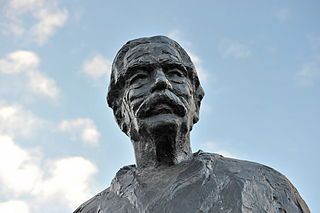Albert Schweitzer, Reverence for Life, and Sustainability

I bring this up to mention the birthday of Albert Schweitzer in 1875: theologian, musical prodigy, author, philosopher, physician and medical missionary. I remember when I was a little boy my grandfather made a huge deal about the man (who was still alive at the time); “Baba” told me that Schweitzer was one of the greatest men in the history of humankind, and it is certainly hard to argue against that.
When Schweitzer received the Nobel Peace Prize in 1952, the bestowing organization remarked, “The expression ‘reverence for life’ is the key to Albert Schweitzer’s personal philosophy. No person must ever harm or destroy life unless absolutely necessary. This attitude permeated everything he did.”
Speaking for all of us, I sure would like to be a bit more “reverence for life” in the 21st Century. Examples are all around us, but to take a single one, we don’t seem to have a problem hacking away what remains of the Amazon rain forest, which we’re turning, largely, into grazing land for beef cattle — at the rate of 1.8 acres per second. For far too many people, the fact that this is so obviously unsustainable is of only vague and distant concern. We tend not to ask “Why can’t we put a stop to this?” or even “What will we do when this huge habitat and CO2-sink is gone?” but rather, “May I have a cheeseburger, please?”
